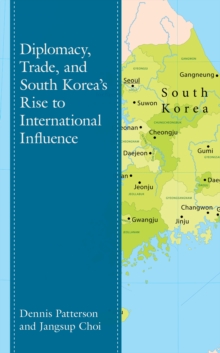
The Metamorphosis of U.S.-Korea Relations : The Korean Question Revisited Hardback
by Jongwoo Han
Part of the Lexington Studies on Korea's Place in International Relations series
Hardback
Description
This book contends that the long history of America’s interaction with Korea started with the signing of the Treaty of Peace, Amity, Commerce, and Navigation in 1882, and with the establishment of the Seward-Shufeldt Line.
William Seward and Robert Shufeldt shared the same vision of achieving their American goal by opening Korea and extending the Seward-Shufeldt Line from Alaska to link it with the Philippines and the Samoan Islands, thus completing a perfect perimeter for the American era of the Pacific and for its dominance in the Asian market.
Initiating diplomatic and trading relations with Korea was Commodore Shufeldt’s finishing touch on the plan for achieving American hegemony in the coming 20th century.
In turn, the decline of Chinese sphere of influence over the Korean Peninsula and the fall of Russian power in the region, with the consequential rise of Japanese power there, which led to a change from the SS Line to the Roosevelts’ Theodore-Franklin Line, the colonization of Korea, the division of Korea, the Korean War, and has brought America back nearly full circle to that first encounter in Pyeongyang; the regrettable General Sherman Incident in 1866.
This book argues that the United States must uphold its early commitment to peace and amity by now normalizing relations with North Korea in order to bring closure to the “Korean Question.”
Information
-
Available to Order - This title is available to order, with delivery expected within 2 weeks
- Format:Hardback
- Pages:320 pages
- Publisher:Lexington Books
- Publication Date:15/04/2022
- Category:
- ISBN:9781498582810
Other Formats
- Paperback / softback from £30.69
Information
-
Available to Order - This title is available to order, with delivery expected within 2 weeks
- Format:Hardback
- Pages:320 pages
- Publisher:Lexington Books
- Publication Date:15/04/2022
- Category:
- ISBN:9781498582810










